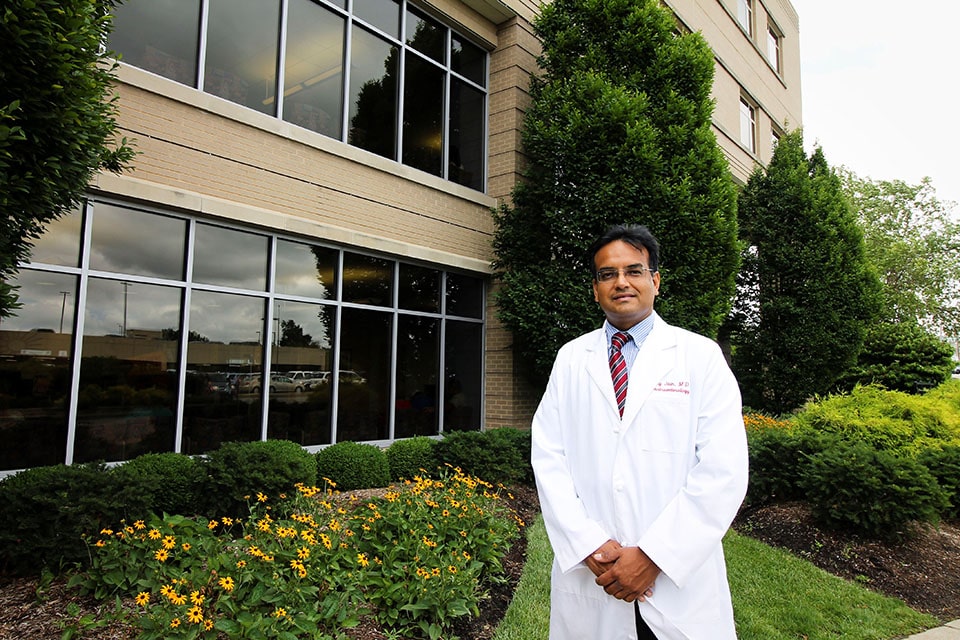Saint Louis University Researcher Awarded NIH Grant to Study the Gut Microbiome
Maggie Rotermund
Senior Media Relations Specialist
maggie.rotermund@slu.edu
314-977-8018
Reserved for members of the media.
A Saint Louis University School of Medicine researcher has received a grant to study the role of gut microbiota in pediatric patients whose injuries prevent them from receiving their nutrition by eating.
Ajay Jain, M.D., associate professor of pediatrics and gastroenterology and hepatology, received $227,250 from the National Institute of Diabetes and Digestive and Kidney Diseases of the National Institutes of Health to study the role of gut microbiota in mediating total parenteral nutrition (TPN) associated injury.
TPN, more commonly known as intravenous feeding, is used when a person’s digestive system doesn't function normally. This happens in patients with gut injury, bowel surgery, trauma, inflammatory bowel disease, as well as in babies with congenital gut problems. A solution containing carbohydrates, proteins, lipids, vitamins, minerals and other nutrients essential for normal nutrition is given intravenously.
More than 30,000 patients in the United States are permanently dependent on TPN and thousands more require it for varying durations to survive. Patients on TPN can suffer side effects which include severe and progressive gut and liver injury. Such injury can lead to significant morbidity and mortality, but the mechanisms for such remain largely unknown.
“Thus, evaluating the causes for these side effects and developing preventative as well as curative strategies remains a major research focus,” Jain said. “There has been intense research in this area throughout the world and while several ideas have been proposed we wanted to ‘think outside the box.’”
Emerging data, Jain said, including results from his previous studies, suggest that there may be an alteration in gut derived signals in those who rely on TPN to survive.
“While they may seem tiny, the gut microbes remain a formidable player in health and disease,” Jain said. “At close to 100 trillion microorganisms carried by each of us, the microbial gene pool is on the order of a 100-fold of any individual’s genome making us 99 percent bacterial and 1 percent human.
In fact, Jain said, his data shows a significant increase in the pro-inflammatory Bacteroidetes phylum and a decrease in the Firmicutes phylum with TPN in comparison to a control group who receive regular enteral nutrition.
“We believe that the altered gut microbiota during TPN may play a prominent role in such injury.”
Jain’s study will look at how transferring fecal microbiota from healthy controls to those on TPN can restore the altered gut microbiota and mitigate TPN-associated liver and gut injury.
“Our focus is to develop novel strategies to ameliorate such TPN-associated complications,” Jain said. “This study could provide critical data to advance our scientific knowledge, greatly help patient populations and provide insights into mechanistic pathways during liver injury and intestinal rehabilitation.”
Jain is a SLUCare pediatric hepatologist and gastroenterologist and the medical director of the pediatric liver transplant program at SSM Health Cardinal Glennon Children's Hospital.
Established in 1836, Saint Louis University School of Medicine has the distinction of awarding the first medical degree west of the Mississippi River. The school educates physicians and biomedical scientists, conducts medical research, and provides health care on a local, national and international level. Research at the school seeks new cures and treatments in five key areas: infectious disease, liver disease, cancer, heart/lung disease, and aging and brain disorders.


















